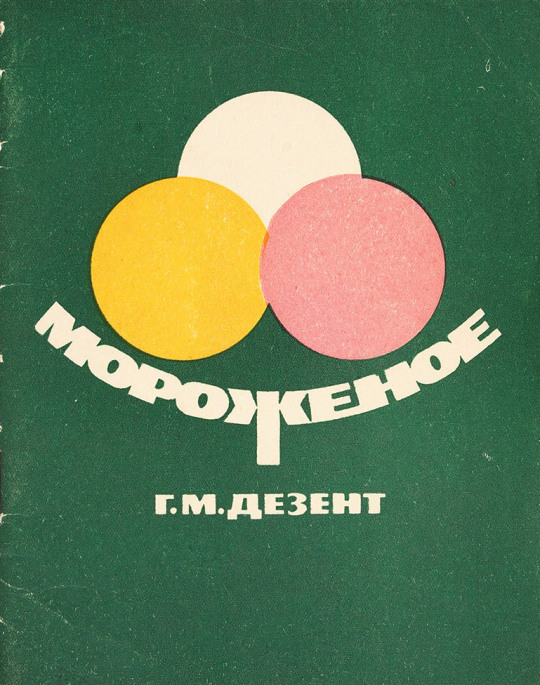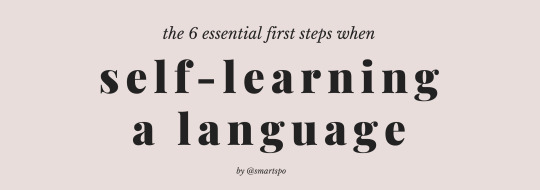Gabby, 30s. I like to learn languages. Swedish 🇸🇪 (A0)Italian 🇮🇹 (A0)Ukrainian 🇺🇦 (A2)Russian 🇷🇺 (B1)Slavic languages my beloved
Don't wanna be here? Send us removal request.
Text
And I'm back. Dabbling in Swedish currently. Let's go! 🇸🇪
Some resources I'm using:
Coffee Break Swedish podcast
Colloquial Swedish (free pdf here), visit the Colloquial Swedish site for free audio that accompanies the book
Babbel
5 notes
·
View notes
Text
Tragic: in that mood to learn every language but there's not enough time or energy in the day
602 notes
·
View notes
Text
Expressing your support in Ukrainian 🇺🇦
🇺🇦 Слава Україні! - Glory to Ukraine!
Героям Слава! - Glory to heroes!
✊ Слава ЗСУ! - Glory to the Ukrainian army! (ЗСУ = Збройні Сили України)
💗 Бережи себе! - Take care! (to one person)
Бережіть себе! - Take care! (to many people)
🌻 Тримайся! - Hang in there! (to one person)
Тримайтеся! - Hang in there! (to many people)
🌾 Повертайся живим і здоровим! - Come back alive and healthy! (to one soldier) Повертайтеся живими і здоровими! - Come back alive healthy! (to many soldiers) Нехай повертається живим і здоровим! - Let him come back alive and healthy! (if someone’s relative goes to serve in the army)
😓 Я молюся за тебе. - I pray for you (one person). Я молюся за вас. - I pray for you (many people). Я молюся за Україну - I pray for Ukraine. ⭐️ Хай Бог береже! - God save you! 🌍 (…) з вами! - (Insert your country) is with you! ❤️ Україна в моєму серці. - Ukraine is in my heart. 🤟 Все буде Україна! - Everything will be Ukraine! 🤮 Путін - хуйло. - Putin is a dickhead. 🤬 ПТН - ПНХ - Abbreviation for “Putin, go fuck yourself”.
source
30 notes
·
View notes
Text
Colors in Ukrainian 🌈

червоний - red
оранжевий, помаранчевий - orange
жовтий - yellow
зелений - green
блакатний, голубий - light blue
синий - dark blue
фіолетовий - violet
рожевий - pink
білий - white
чорний - black
коричневий - brown
сірий - grey
веселка - rainbow
колір, кольори - color, colors
Який ваш улюбленний колір? - What is your favorite color?
22 notes
·
View notes
Text

Book cover of "Ice Cream" by G. Dezent (1967)
124 notes
·
View notes
Text
I have just learned about virile/nonvirile plural of adjectives and pronouns in Polish 🥲 lord help me
1 note
·
View note
Text
Tips to learn a new language
The 75 most common words make up 40% of occurrences The 200 most common words make up 50% of occurrences The 524 most common words make up 60% of occurrences The 1257 most common words make up 70% of occurrences The 2925 most common words make up 80% of occurrences The 7444 most common words make up 90% of occurrences The 13374 most common words make up 95% of occurrences The 25508 most common words make up 99% of occurrences
(Source: 5 Steps to Speak a New Language by Hung Quang Pham)
This article has an excellent summary on how to rapidly learn a new language within 90 days.
We can begin with studying the first 600 words. Of course chucking is an effective way to memorize words readily. Here’s a list to translate into the language you desire to learn that Derek Roger suggested! :)
EXPRESSIONS OF POLITENESS (about 50 expressions)
‘Yes’ and 'no’: yes, no, absolutely, no way, exactly.
Question words: when? where? how? how much? how many? why? what? who? which? whose?
Apologizing: excuse me, sorry to interrupt, well now, I’m afraid so, I’m afraid not.
Meeting and parting: good morning, good afternoon, good evening, hello, goodbye, cheers, see you later, pleased to meet you, nice to have met.
Interjections: please, thank you, don’t mention it, sorry, it’ll be done, I agree, congratulations, thank heavens, nonsense.
NOUNS (about 120 words)
Time: morning, afternoon, evening, night; Sunday, Monday, Tuesday, Wednesday, Thursday, Friday, Saturday; spring, summer, autumn, winter; time, occasion, minute, half-hour, hour, day, week, month, year.
People: family, relative, mother, father, son, daughter, sister, brother, husband, wife; colleague, friend, boyfriend, girlfriend; people, person, human being, man, woman, lady, gentleman, boy, girl, child.
Objects: address, bag, book, car, clothes, key, letter (=to post), light (=lamp), money, name, newspaper, pen, pencil, picture, suitcase, thing, ticket.
Places: place, world, country, town, street, road, school, shop, house, apartment, room, ground; Britain, name of the foreign country, British town-names, foreign town-names.
Abstract: accident, beginning, change, color, damage, fun, half, help, joke, journey, language, English, name of the foreign language, letter (of alphabet), life, love, mistake, news, page, pain, part, question, reason, sort, surprise, way (=method), weather, work.
Other: hand, foot, head, eye, mouth, voice; the left, the right; the top, the bottom, the side; air, water, sun, bread, food, paper, noise.
PREPOSITIONS (about 40 words)
General: of, to, at, for, from, in, on.
Logical: about, according-to, except, like, against, with, without, by, despite, instead of.
Space: into, out of, outside, towards, away from, behind, in front of, beside, next to, between, above, on top of, below, under, underneath, near to, a long way from, through.
Time: after, ago, before, during, since, until.
DETERMINERS (about 80 words)
Articles and numbers: a, the; nos. 0–20; nos. 30–100; nos. 200–1000; last, next, 1st–12th.
Demonstrative: this, that.
Possessive: my, your, his, her, its, our, their.
Quantifiers: all, some, no, any, many, much, more, less, a few, several, whole, a little, a lot of.
Comparators: both, neither, each, every, other, another, same, different, such.
ADJECTIVES (about 80 words)
Color: black, blue, green, red, white, yellow.
Evaluative: bad, good, terrible; important, urgent, necessary; possible, impossible; right, wrong, true.
General: big, little, small, heavy; high, low; hot, cold, warm; easy, difficult; cheap, expensive; clean, dirty; beautiful, funny (=comical), funny (=odd), usual, common (=shared), nice, pretty, wonderful; boring, interesting, dangerous, safe; short, tall, long; new, old; calm, clear, dry; fast, slow; finished, free, full, light (=not dark), open, quiet, ready, strong.
Personal: afraid, alone, angry, certain, cheerful, dead, famous, glad, happy, ill, kind, married, pleased, sorry, stupid, surprised, tired, well, worried, young.
VERBS (about 100 words)
arrive, ask, be, be able to, become, begin, believe, borrow, bring, buy, can, change, check, collect, come, continue, cry, do, drop, eat, fall, feel, find, finish, forget, give, going to, have, have to, hear, help, hold, hope, hurt (oneself), hurt (someone else), keep, know, laugh, learn, leave, lend, let (=allow), lie down, like, listen, live (=be alive), live (=reside), look (at), look for, lose, love, make, may (=permission), may (=possibility), mean, meet, must, need, obtain, open, ought to, pay, play, put, read, remember, say, see, sell, send, should, show, shut, sing, sleep, speak, stand, stay, stop, suggest, take, talk, teach, think, travel, try, understand, use, used to, wait for, walk, want, watch, will, work (=operate), work (=toil), worry, would, write.
PRONOUNS (about 40 words)
Personal: I, you, he, she, it, we, they, one; myself, yourself, himself, herself, itself, ourselves, yourselves, themselves.
Possessive: mine, yours, his, hers, its, ours, theirs.
Demonstrative: this, that.
Universal: everyone, everybody, everything, each, both, all, one, another.
Indefinite: someone, somebody, something, some, a few, a little, more, less; anyone, anybody, anything, any, either, much, many.
Negative: no-one, nobody, nothing, none, neither.
ADVERBS (about 60 words)
Place: here, there, above, over, below, in front, behind, nearby, a long way away, inside, outside, to the right, to the left, somewhere, anywhere, everywhere, nowhere, home, upstairs, downstairs.
Time: now, soon, immediately, quickly, finally, again, once, for a long time, today, generally, sometimes, always, often, before, after, early, late, never, not yet, still, already, then (=at that time), then (=next), yesterday, tomorrow, tonight.
Quantifiers: a little, about (=approximately), almost, at least, completely, very, enough, exactly, just, not, too much, more, less.
Manner: also, especially, gradually, of course, only, otherwise, perhaps, probably, quite, so, then (=therefore), too (=also), unfortunately, very much, well.
CONJUNCTIONS (about 30 words)
Coordinating: and, but, or; as, than, like.
Time & Place: when, while, before, after, since (=time), until; where.
Manner & Logic: how, why, because, since (=because), although, if; what, who, whom, whose, which, that.
240K notes
·
View notes
Photo

As a language lover who can’t possibly afford all of the language lessons I would love to take, over the years I learned the best ways to self-learn them. This introductory phase doesn’t even require a textbook - I am sure everything here can be found online for free.
Disclaimer: this is the method that works the best for me, and I’m sharing it with the intention of helping other people who are stuck. There’s a million different ways to self-learn a language, so if this one doesn’t work out for you, don’t lose motivation!
Disclaimer 2: this method might not work with all languages. I’m sharing this knowledge keeping in mind my experience with Latin (in particular French, Spanish, etc) and East Asian (in particular Korean and Japanese) languages.
Without further ado, here are the steps:
1. If you’re learning a language that uses a different alphabet, make sure that’s the first thing you learn
Relying on romanization is fine at first, but further down the path it will only serve to confuse you. Romanized words of these types of languages can be written in many different ways, so often they don’t even provide an accurate way of pronouncing them. Furthermore, as you make progress, you won’t be able to access a lot of content in your target language since you won’t find it romanized.
2. Learn your first words
Before actually getting into all the grammar rules and whatnot, learn your first words! These include, among others:
Greetings
Answers (yes, no, maybe, etc)
Numbers
Please and thank you
Practice their pronunciation to get used to the language’s sounds, and how they’re written (especially if you have to use another alphabet - it’s a chance to practice your calligraphy!).
3. Learn essential vocabulary and grammar
I call these “essential vocabulary/grammar” because they are words you must know to build sentences (other than verbs). These include:
Articles (definite, indefinite, partitive, etc)
Basic pronouns (personal, possessive, etc)
Depending on the language, basic grammatical particles
Sentence order! In many languages, the subject/verb/noun order is totally different. Make sure to know how your target language orders that.
Make sure to also learn their rules and remember the exceptions. The latter are always annoying, but don’t worry - as you progress, you will learn these by heart, and they will eventually come to you naturally!
4. Learn the most basic verbs in the present tense
Like the vocabulary of the previous step, verbs are also essential when building sentences. Now that you’re only a beginner, you don’t need to learn difficult verbs or tenses, so stick with the most used ones:
to be
to have
to do/make
to say
to go
to know
to think
to see
to want
to give
5. More vocab!
Now that you know your verbs, complement your knowledge by adding more basic vocabulary. Here are some ideas:
Places
Food
Objects
Adjectives
Family members
Knowing these in addition to the grammar points you’ve learned will allow you to construct simple sentences, such as I am going home or This is my sister.
6. Practice for your level
Like many other people, I’m guilty of jumping straight into watching movies and shows in my target language, only to get frustrated with myself when I don’t understand anything despite everything I learned until then. Of course, I’m not saying you shouldn’t do it, since it does help you develop your listening skills (especially if you do it with subtitles!), but I have a tip for the ones who prefer an easier activity.
Look for children’s content! I know this sounds silly at first, but books, movies, shows, etc made for children usually use basic grammar and vocabulary. If you think about it, the listening exercises you find in language grammar books made for beginners often seem like they’re made for children for that reason. Therefore, if you can’t find clips and texts for your level easily, try following this tip!
A few more tips for self-learners + resources
Write a diary in your target language. Even if you don’t know that much, try describing your day the best way you can (even if that means you have to write everything in the present tense). That’s a way of understanding what sort of vocabulary is useful in your daily life and what are your weaknesses.
For you listening skills, other than Netflix, listen to music as well! Seize the opportunity to also learn the new vocabulary you find in the songs.
For speaking skills, if you don’t have anyone to practice with, read texts out loud and record yourself to check your pronunciation. If you’re up to it, finding friends online that speak your target language is also a great way of practicing dialogue!
Most used words in every language
Textbook masterpost
More helpful books!
Random tasks to practice your target language
My blog’s langblr tag for more helpful posts
Happy studying! ✨
2K notes
·
View notes
Text
I love you dumplings I love you gyoza I love you xiaolongbao I love you wonton I love you baozi I love you mandu and yes even you, ravioli
82K notes
·
View notes
Text

The Dormition Cathedral, Kyiv, Ukraine.
120 notes
·
View notes
Text

April 2014: The Lavra monastery complex in Kyiv, Ukraine.
47 notes
·
View notes
Text
i really think learning languages is like. good for your soul. net positive.
765 notes
·
View notes
Text

Folk costumes from Opoczno
Photo by: Patrycja Dasz | Toronto Photographer
142 notes
·
View notes
Text
When you first start learning a language the meaning of all of the words that you learn depend entirely on the equivalent word in a language you speak, and without that word to give it a meaning it would just be a random sound to you, but later on you don’t need that equivalent word for the new words you’ve learned to have meaning anymore and they just exist on their own in your brain without attachment to any other languages and I think that that’s my definition of fluency, when the words stop depending on another language for meaning in your mind
11K notes
·
View notes
Text
Duolingo Alternatives by Language
Disclaimer: I haven't used or tested all of them. All resources have different strengths, e.g. Drops being designed for vocabulary. They often aren't full alternatives for Duolingo or formal classes. I just wanted to compile resources for all languages on Duolingo to make the switch easier, especially for the less popular languages.
Feel free to also check out my collection of free textbooks
If you want a more detailed resource list for any of these languages (or perhaps one not listed here) you can send me an ask and I can see what I can do.
Arabic
AlifBee
Arabic Unlocked
Beelinguapp
Bluebird
Busuu
Clozemaster
Drops
Infinite Arabic
Ling
LinGo Play
LingQ
Mango
Mondly
Qlango
Write It! Arabic
Catalan
Bluebird
Clozemaster
Drops
Ling
LinGo Play
LingQ
LyricsTraining
Mondly
Qlango
Chinese
Bluebird
Beelinguapp
Bunpo
Busuu
Chineasy
Clozemaster
Drops
Du Chinese
Hello Chinese
HeyChina
Immersive Chinese
Infinite Chinese
Ling
Lingodeer
LinGo Play
Lingopie
LingQ
Mango
Mondly
Pleco Chinese Dictionary
Qlango
Czech
Bluebird
Clozemaster
Ling
LinGo Play
Mango
Mondly
Qlango
Danish
Babbel
Bluebird
Clozemaster
Drops
Ling
LinGo Play
Lingvist
LingQ
Mango
Mondly
Qlango
Dutch
Babbel
Bluebird
Busuu
Clozemaster
Drops
Ling
LinGo Play
Lingvist
LingQ
LyricsTraining
Mango
Mondly
Say Something in Dutch
Qlango
Esperanto
Clozemaster
Drops
Esperanto12.net
Kurso de Esperanto
LingQ
Qlango
Finnish
Bluebird
Clozemaster
Drops
Ling
LinGo Play
LingQ
LyricsTraining
Mango
Mondly
Qlango
French
Babbel
Bluebird
Beelinguapp
Bunpo
Busuu
Clozemaster
Collins French Dictionary
Conjuu
Dr French
Drops
HeyFrance
Infinite French
Lilata
Ling
Linga
Lingodeer
LinGo Play
Lingopie
Lingvist
LingQ
Listen Up
LyricsTraining
Mango
Mondly
Nextlingua
Oxford French Dictionary
Qlango
TV5MONDE
Xeropan
German
Babbel
Bluebird
Beelinguapp
Bunpo
Busuu
Clozemaster
Collins German Dictionary
Conjuu
Drops
DW Learn German
Infinite German
Ling
Linga
Lingodeer
Lingopie
LinGo Play
Lingvist
LingQ
LyricsTraining
Mango
Mondly
Nextlingua
Oxford German Dictionary
Qlango
Xeropan
Greek
Bluebird
Clozemaster
Drops
Greek Alphabet Academy
Ling
LinGo Play
LingQ
Mango
Mondly
Qlango
Write It! Greek
Guaraní
Clozemaster
Guarani Ayvu
Haitian Creole
Bluebird
Mango
Hawaiian
Drops
Mango
ʻŌlelo Online
Hebrew
Bluebird
Clozemaster
Drops
Ling
LinGo Play
LingQ
Mango
Mondly
Shepha
Write It! Hebrew
High Valyrian
Valyrian Dictionary
Hindi
Bhasha
Bluebird
Beelinguapp
Clozemaster
Drops
Hindwi Dictionary
Ling
LinGo Play
LingQ
Mango
Mondly
Qlango
Hungarian
Bluebird
Clozemaster
Drops
Ling
LinGo Play
LingQ
Mango
Mondly
Qlango
Indonesian
Babbel
Bluebird
Clozemaster
Drops
Ling
LinGo Play
LingQ
Mango
Mondly
Irish
Bluebird
Clozemaster
Collins Irish Dictionary
Drops
Easy Irish
Ling
Mango
Teanglann
Italian
Babbel
Beelinguapp
Bluebird
Bunpo
Busuu
Clozemaster
Collins Italian Dictionary
Conjuu
Drops
Infinite Italian
Ling
Linga
Lingodeer
Lingopie
LinGo Play
Lingvist
LingQ
LyricsTraining
Mango
Mondly
Nextlingua
Oxford Italian Dictionary
Qlango
Japanese
Beelinguapp
Bluebird
Bunpo
Busuu
Clozemaster
Drops
HeyJapan
Hiragana Quest
Infinite Japanese
kawaiiDungeon
Ling
Lingodeer
Lingopie
Lingvist
LingQ
LyricsTraining
Mango
Mondly
Oyomi Japanese Reader
renshuu
Takoboto Japanese Dictionary
Todaii
Qlango
Write It! Japanese
Klingon
boQwl! Klingon Language
Klingon Translator
Write It! Klingon
Korean
Beelinguapp
Bluebird
Bunpo
Busuu
Clozemaster
Drops
Hangul Quest
HeyKorea
Infinite Korean
Ling
LinGo Play
Lingopie
Lingodeer
Lingvist
LingQ
Mango
Mondly
Qlango
Write It! Korean
Latin
Bluebird
Cattus
Clozemaster
Collins Latin Dictionary
Grammaticus Maximus
Latinia
Legentibus
LingQ
Mango
Mondly
Perdisco
Qlango
Vice Verba
Navajo
Navajo Language Renaissance
Navajo Language Program
Speak Navajo
Norwegian
Babbel
Bluebird
Clozemaster
Drops
Ling
LinGo Play
Lingvist
LingQ
Mango
Mondly
Mjolnir Norwegian
Norskappen
Qlango
Polish
Babbel
Bluebird
Busuu
Clozemaster
Drops
Ling
LinGo Play
Lingvist
LingQ
LyricsTraining
Mango
Mondly
Qlango
Portuguese
Babbel
Beelinguapp
Bluebird
Bunpo
Busuu
Clozemaster
Collins Portuguese Dictionary
Drops
Infinite Portuguese
Ling
Lingodeer
Lingopie
LinGo Play
Lingvist
LingQ
LyricsTraining
Mango
Mondly
Nextlingua
Qlango
Romanian
Bluebird
Clozemaster
Drops
Ling
LinGo Play
LingQ
Mango
Mondly
Qlango
Russian
Babbel
Bluebird
Beelinguapp
Busuu
Clozemaster
Collins Russian Dictionary
Drops
Infinite Russian
Ling
Linga
LinGo Play
Lingopie
Lingodeer
Lingvist
LingQ
Mango
Mondly
Nextlingua
Qlango
Write It! Russian
Scottish Gaelic
Bluebird
Clozemaster
Go!Gaelic
Mango
Spanish
Babbel
Beelinguapp
Bluebird
Bunpo
Busuu
Clozemaster
Collins Spanish Dictionary
ConjuGato
Conjuu
Drops
Infinite Spanish
Ling
Linga
Lingodeer
LinGo Play
Lingvist
LingQ
Listen Up
LyricsTraining
Mango
Mondly
Nextlingua
Say Something in Spanish
SpanishDict
Qlango
Xeropan
Swahili
Bluebird
Bui Bui Swahili App
Clozemaster
Drops
Ling
LinGo Play
LingQ
Mango
Nkenne
Swedish
Babbel
Beelinguapp
Bluebird
Clozemaster
Drops
Ling
LinGo Play
Lingvist
LingQ
LyricsTraining
Mango
Mondly
Qlango
Turkish
Babbel
Beelinguapp
Bluebird
Busuu
Clozemaster
Drops
Ling
LinGo Play
LingQ
LyricsTraining
Mango
Mondly
Qlango
Ukrainian
Bluebird
Clozemaster
Drops
Ling
LinGo Play
LingQ
Mango
Mondly
Mova Ukrainian
Qlango
Speak Ukrainian
Vietnamese
Bluebird
Clozemaster
Collins Vietnamese Dictionary
Drops
Learn Vietnamese with Annie
Ling
Lingodeer
LinGo Play
Mango
Mondly
Welsh
BBc Cymru Fyw
Bluebird
Clozemaster
Say Something in Welsh
Yiddish
Bluebird
Clozemaster
Mango
Proste Yiddish
Roni Gal Learn Yiddish
Vaybertaytsh
Yiddish Book Center
Zulu
Bluebird
Nkenne
Bonus: Polygloss which claims to be available for all languages as long as there is another user also learning the same language
7K notes
·
View notes












